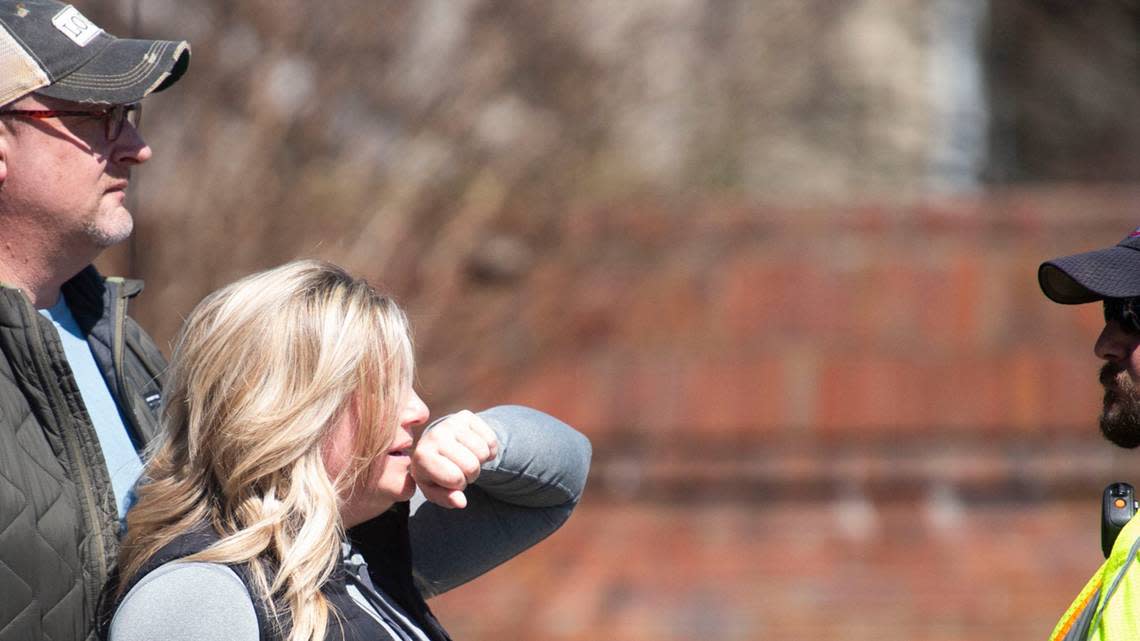Each person is unique, so stop your racist judging | Opinion

Accept people as they are
The evil kind of racism is relatively rare, involving a desire to see harm come to people. Most racism is casual, like laughing at jokes that demean people, or lazy, like relying on some generalization instead of assessing people as individuals.
People are different from machines in the same way rocks are different from bricks. People don’t come off an assembly line. Every person is unique, unlike anyone who has ever lived. Even identical twins have different personalities. Every person is a mystery, even to themselves in some ways.
Thinking people are all the same reduces humanity to a caricature sketch of reality, denies that we’re 9 billion unique individuals, each pursuing a life with a unique set of goals. And the world today was custom-made by each of us over the millennia.
J. Jason Gale, Riverbank
Need solutions, not prayers
At some point, we’re going to have to realize that thoughts and prayers just ain’t cutting it. We no longer need a well-regulated militia. Hell, we don’t even need a semi-regulated militia. We have local SWAT teams with more firepower than George Washington’s entire first infantry. With drones, tanks, nuclear-powered aircraft carriers and actual nukes, I think we’ve got the security of a free state covered.
There are people in this country who should not have guns. Full stop.
Our thoughts and prayers are comforting for the living, but they don’t do a damn thing for children who are slaughtered in their schools.
Tim de Lorimier, Modesto
Police, do you care?
Why doesn’t the Modesto Police Department enforce our local laws? I live near College and Briggsmore. I hear a lot of noise and it is irritating. The cars and the cycles are continually speeding and making a lot of noise with their engines. This is especially bothersome to someone who is older and has a high-level pain problem. I also hear a lot of loud sirens in the area.
Modesto police, don’t go along with the rest of the country. Enforce the laws, or don’t have them.
David Shirk, Modesto
Discrimination dilemma
Re “We mustn’t ignore racist past” (Letters, March 26): The writer argues that removing restrictive covenants from property deeds is whitewashing a racist past. While one could view the problem that way, I think there is a more important underlying consideration.
These are legal documents. While the covenants in question are odious and do not reflect our current thinking on housing discrimination, remaining in the deed makes them legally enforceable. Removing them prevents that possibility. A conundrum, for sure. Leaving them in to retain evidence of a racist past perpetuates discrimination we now see being racist and unacceptable. Taking them out removes that evidence but appears as an act of covering up for that racist past. Which serves the greater good?
My concern is the legality of removing them. If it is appropriate for the county to remove them, would an amendment to the deed, countermanding the provisions of the covenants, be a way of both preserving the evidence of racism while preventing its execution?
Richard C. Cato, Modesto
Pandemic pay earned
Re “Check for thee, but not for me” (Letters, March 26): As a city employee, I watched and participated in keeping all vital services for the citizens of Modesto up and running during a time when most people were encouraged and allowed to stay home to stay safe. Our hardworking city employees attended to streetlights, clean water, broken tree limbs, green waste, street sweeping, potholes, sidewalks, broken water lines, sewer blockages, emergency calls, and other dangerous situations putting us face-to-face with other citizens who may be sick.
This money was provided to the city by the federal government and there were provisions in that funding, including hazard pay for employees who worked during this time. I assure you, all who are receiving this pay not only worked very hard for it, they have earned it 100 times over. It is so sad that in this day and age, instead of taking time to show gratitude for the hard work done, we are quick to judge when we do not benefit from the same government programs as others.
The city is always hiring; I encourage you to apply for any job that may fit your background. Once you have an opportunity to see the hard work put in day and night, weekends and holidays, you will have a different perspective and may be more inclined to say “Thank you, well deserved” instead of “What about me?”
Tristan Bates, Modesto


